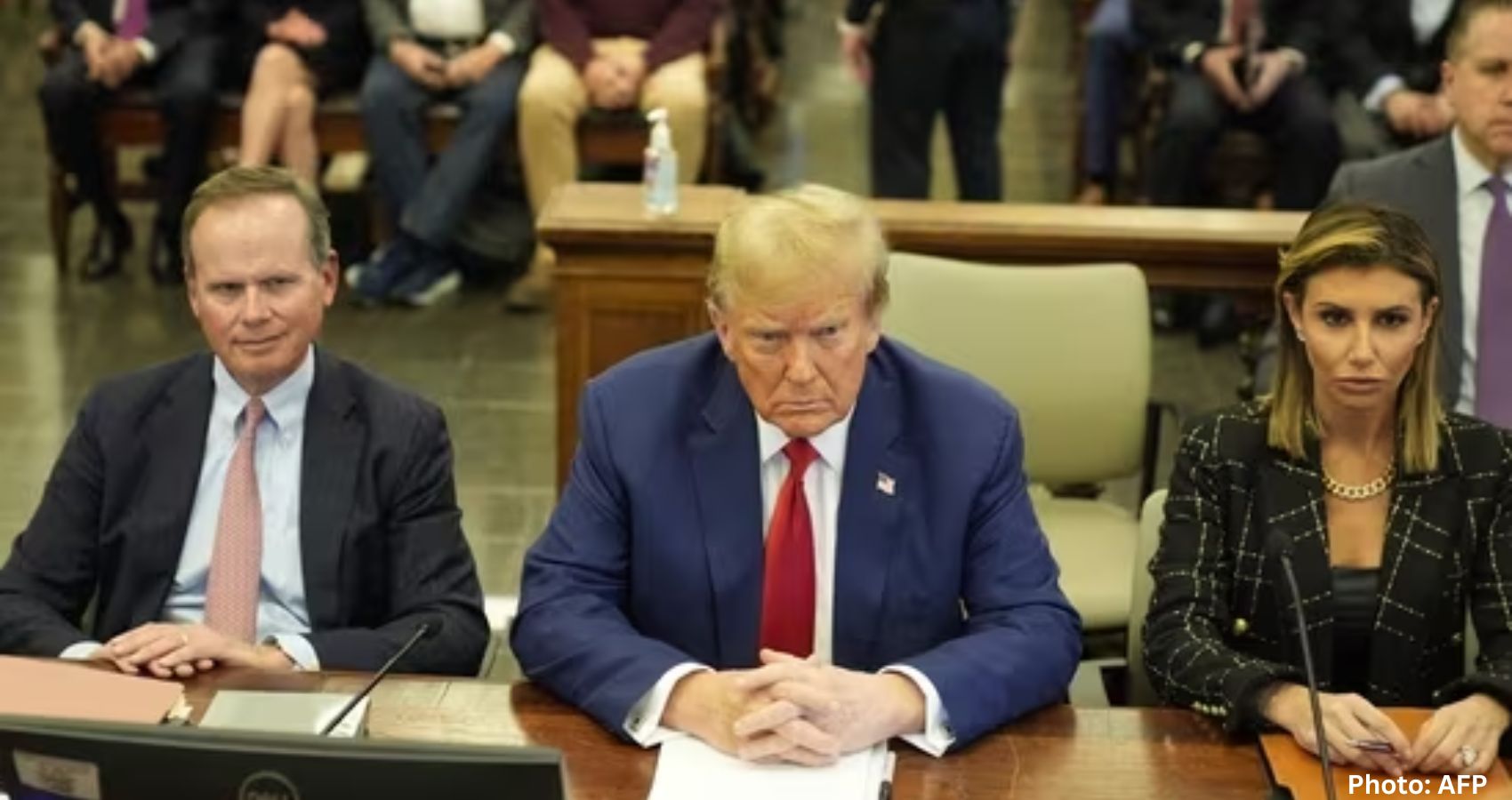A New York appeals court has granted former President Donald Trump a temporary reprieve from the collection of his $454 million civil fraud judgment, provided he can put up $175 million within the next ten days.
The court’s decision allows Trump to halt the collection process and shields his assets from seizure by the state while he pursues his appeal. Additionally, the court suspended other aspects of the trial judge’s ruling, which had banned Trump and his sons Eric Trump and Donald Trump Jr. from holding corporate leadership positions for several years.
This ruling represents a significant legal victory for the former president as he defends his real estate empire, which has been central to his public persona. The timing is crucial, coming just before New York Attorney General Letitia James, a Democrat, was set to initiate efforts to enforce the judgment.
Trump, who was attending a separate hearing regarding his criminal hush money case in New York, expressed satisfaction with the ruling and pledged to meet the financial requirements set by the court. He criticized the trial judge, Arthur Engoron, for what he perceived as unfair treatment and argued that the fraud case was detrimental to business interests in New York.
While Trump celebrated the court’s decision, James’ office emphasized that the judgment against him remains valid despite the temporary pause in collection efforts.
Trump’s legal team had petitioned the appeals court to halt the collection, citing difficulties in securing an underwriter for a bond covering the substantial sum owed, which continues to accrue interest. Although the court rejected their initial proposal for a $100 million bond, it has now provided a pathway for Trump to delay collection by requiring a $175 million bond.
The ruling was issued by a five-judge panel in the state’s intermediate appeals court, known as the Appellate Division, where Trump is challenging Engoron’s ruling issued on February 16.
Engoron’s decision followed a lengthy civil trial in which he sided with the attorney general, finding that Trump, his company, and top executives had misrepresented Trump’s wealth on financial documents, deceiving lenders and insurers. For instance, the valuation of Trump’s penthouse was inflated to nearly three times its actual worth.
Trump and his co-defendants have denied any wrongdoing, arguing that the financial statements were conservative estimates and were not taken at face value by lenders or insurers. They asserted that any discrepancies were inadvertent errors made by subordinates.
The court’s decision to require Trump to post a $175 million bond effectively puts the collection of the judgment on hold, including obligations for Trump’s sons, Eric and Donald Jr., who were ordered to pay smaller amounts.
Following James’ victory in the trial, there was a legal hiatus during which Trump could appeal for relief from payment enforcement. However, this period ended with the recent court ruling.
While James has not disclosed specific plans for seizing Trump’s assets, she has indicated a willingness to pursue various avenues, including bank accounts, investment holdings, and properties such as the Trump Tower penthouse, aircraft, office buildings, and golf courses.
The process of liquidating such substantial assets could prove challenging, according to legal experts, given the magnitude of Trump’s holdings and the complexities involved in finding buyers.
Under New York law, filing an appeal typically does not forestall judgment enforcement, but posting a bond covering the owed amount triggers an automatic pause in collection efforts. Bonds of this magnitude are rare, according to legal analysts, particularly when the individual is required to secure it personally.
Trump’s legal team had encountered difficulties in securing an underwriter for the bond, which was reportedly set at 120% of the judgment amount. They argued against tying up significant liquid assets, including cash and stocks, which are crucial for the operation of Trump’s business ventures.
The court’s decision to require a lower bond amount represents a compromise between the parties, providing Trump with a temporary respite from collection while ensuring some financial security for potential creditors.


